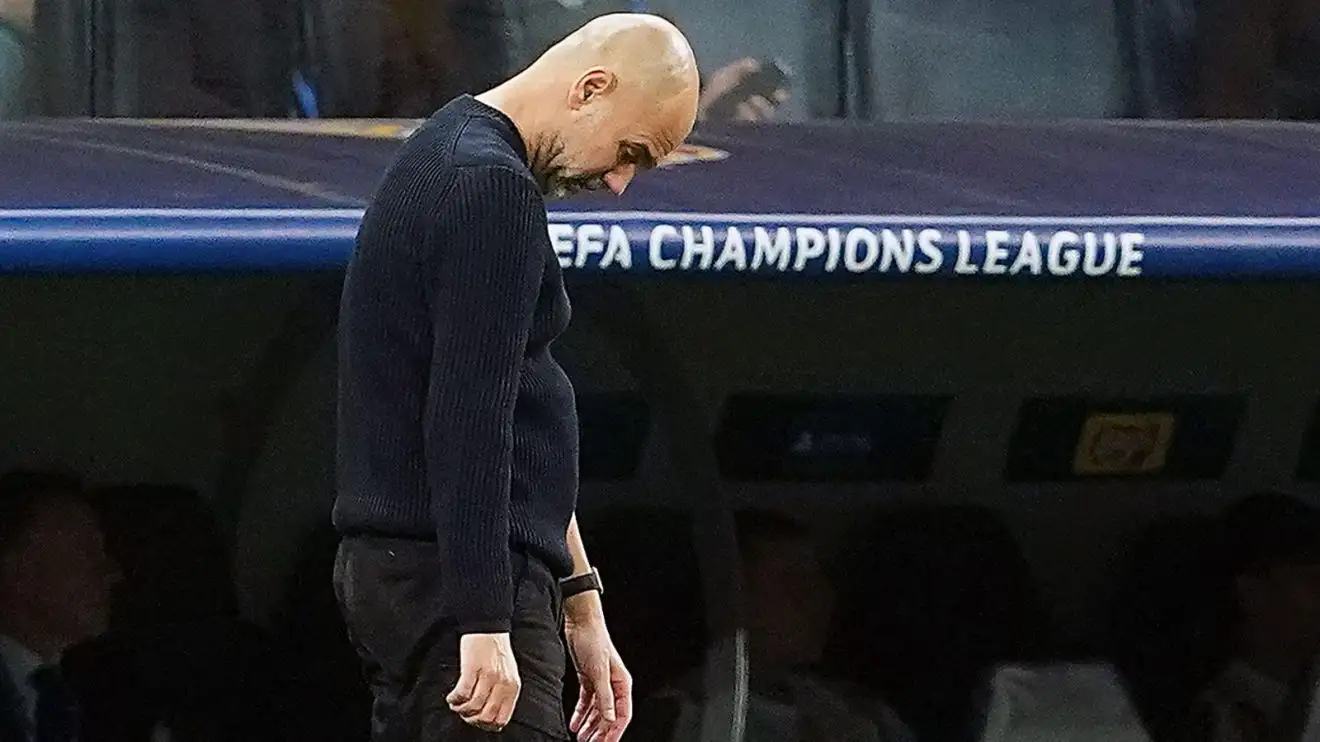When a team as dominant as Manchester City suffers a rare defeat, the ripples aren’t just felt across the league — they strike at the very core of the manager who has orchestrated their success. For Pep Guardiola, another setback this season is not just a lost three points; it’s a deeply personal failure that will affect him on every level.

The Weight of Expectations on Guardiola
Since taking over Manchester City in 2016, Pep Guardiola has transformed the club into an international powerhouse, delivering four Premier League titles in the last five seasons and lifting the UEFA Champions League trophy for the first time in 2023. However, Guardiola’s legacy is not one of mere success but of relentless, almost obsessive pursuit of perfection. In his eyes, anything less than that is a form of failure.
For a manager so dedicated to the idea of winning with style, any defeat is an affront to his philosophy. When Manchester City lose, it’s not just a statistic; it’s a reflection of the vulnerabilities in his own strategies, his decision-making, and his ability to adapt. A defeat for Guardiola is a personal burden, one that he carries as heavily as his team does. It’s not just the fans or the players who feel the impact — Guardiola himself takes the pain of defeat more acutely than anyone.
A Rare Setback Against Top Competition
Given Manchester City’s dominance in recent years, particularly in the Premier League, a loss in any fixture — especially against fellow title contenders — is not just unexpected; it is almost unthinkable. Guardiola’s style of play, built on high pressing, fluid possession, and tactical versatility, has often overwhelmed opponents. Yet, in the instances where City have suffered defeat, the result has often come against teams that have found a way to disrupt their rhythm or exploit weaknesses that Guardiola’s meticulously constructed system struggles to address.
If City were to suffer another loss — particularly at the hands of a fierce competitor — it would serve as a stark reminder that even the greatest managers and teams are vulnerable. In a league like the Premier League, with its unpredictable nature, no manager, no matter how skilled, is immune from setbacks. And for Guardiola, this would feel like an insurmountable challenge. A failure to win the big games is often interpreted as a failure of the manager to adapt, something Guardiola is painfully aware of.
The Emotional Toll on Guardiola
Pep Guardiola is famously intense, often wearing his emotions on his sleeve during press conferences and on the sidelines. He rarely hides his disappointment after a defeat, showing the weight of the result in his demeanor. For Guardiola, each loss is not simply a loss of points but a personal wound that he will dissect, analyze, and reflect upon for days, if not weeks. He is known for being incredibly self-critical and demanding, and a defeat — especially if it comes in a critical game — will haunt him long after the final whistle.
Unlike some other top managers who may brush off losses as a part of the game, Guardiola tends to internalize them, believing that he could have done more, made a better tactical decision, or perhaps pushed his players harder. This psychological toll is compounded by the fact that Guardiola is driven not just by success but by a profound fear of failure. His relentless pursuit of the perfect performance means that even a small blemish feels catastrophic to him.
What Does a Defeat Mean for Guardiola’s Legacy?
Guardiola’s legacy is already firmly established as one of the greatest managers in football history. However, for someone as driven as he is, the constant pressure to win at the highest level only intensifies with each passing season. Another defeat for Manchester City, especially in a crucial title race or knockout stage, could shake his self-perception and, for a time, cloud the incredible achievements of his managerial career.
What sets Guardiola apart, however, is his ability to learn from setbacks. His resilience in the face of failure has seen him bounce back stronger, using defeat as fuel for the next phase of success. That’s the paradox of a manager who will suffer deeply after a defeat — his capacity to turn that suffering into motivation is part of what makes him great.
However, another failure, particularly if it disrupts City’s bid for a third consecutive Premier League title or a deep run in the Champions League, could cause Guardiola to revisit his tactics and philosophy in a more critical light. The defeat would not just be a statistic; it would feel like a reflection of his own limitations as a manager — a concept he has never comfortably accepted.
How Does Guardiola Respond to Defeat?
Guardiola’s response to any defeat is pivotal not just for Manchester City but also for the wider footballing world. He is a manager who has made an art form out of tactical innovation, constantly evolving his approach to the game. If another loss comes his way, particularly after years of near-perfect success, he will likely use it as a catalyst for change.
Whether it’s rethinking his squad rotation, adjusting his approach to key matches, or reinforcing his philosophy in the dressing room, Guardiola will not wallow in self-pity. Instead, he will channel his frustration and sadness into finding new ways to improve his team. That’s the Guardiola way: suffering is not the end, but the beginning of reinvention.
